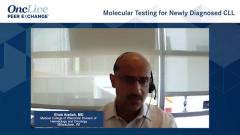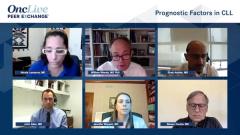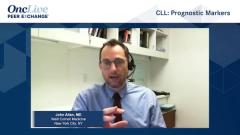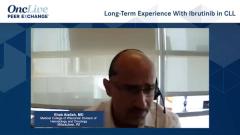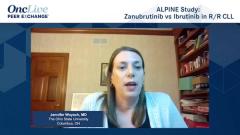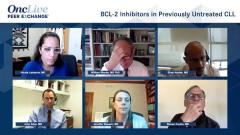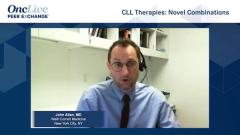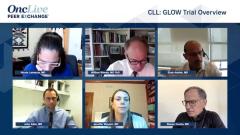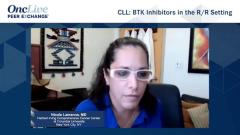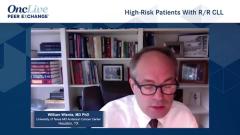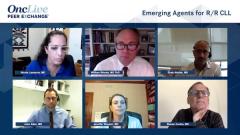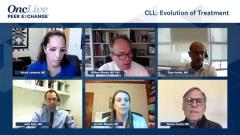
High-Risk Patients With R/R CLL
A discussion about treatment for high-risk patients with relapsed/refractory (R/R) chronic lymphocytic leukemia (CLL).
Episodes in this series

William Wierda, MD, PhD: Maybe somebody can summarize who they think of as high risk in the relapsed setting. Is it the same factors in the relapsed setting as in the frontline setting, or are there additional things that people are thinking about in the relapsed setting? Steve, how do you think about patients who have relapsed?
Steven Coutre, MD: It depends on if they’ve come from the chemotherapy-immunotherapy era. It’s a different patient population. Paradoxically, let’s say you haven’t received chemotherapy-immunotherapy, just a single-agent BTK [Bruton tyrosine kinase] inhibitor or what have you. The reason for them relapsing will probably be different from what we’ve traditionally seen with chemotherapy-immunotherapy. It points out that you really have to consider how the patient got to where they’re at, why they have recurrent disease, and what they have previously received before making your decision.
Factors like TP53 disruption will always remain high risk, but I’m willing to bet that we’re going to see much less of that when we’re using these novel agents instead of chemotherapy-immunotherapy. I can’t find those data myself with long-term follow-up. But how many patients who haven’t received chemotherapy-immunotherapy later develop a TP53 mutation? It’s vanishingly small. So that might be favorable.
William Wierda, MD, PhD: Yes, we’re definitely getting much better outcomes with our relapsed population. The comment that I would make in follow-up to Jennifer’s with regard to the MURANO data is that we never would have seen a progression-free survival like that with chemotherapy-immunotherapy. I did a lot of work early on with FCR [fludarabine, cyclophosphamide, rituximab], and the median progression-free survival was less than half of what it is with venetoclax-based therapy. But we do see high-risk patients with 17p deletion and mutated TP53.
My opinion is also that patients who are refractory to a BTK inhibitor are high risk because they have a shorter progression-free survival with venetoclax-based therapy, at least in the monotherapy experience. If I have a patient who’s refractory to a BTK inhibitor, I’m thinking, “What am I going to do? What’s my long-term plan?” Historically, we’ve sent more patients to stem cell transplant, but that’s still an option. Dr Atallah, maybe you can give us your thoughts and comments on where stem cell transplant is useful in our treatment algorithms, strategy, and long-term treatment of our population.
Ehab Atallah, MD: That’s a smaller population, but that decision is becoming increasingly complex. Before we had all this, if you had someone younger relapsed with 17p deletion, we felt much more comfortable sending them to transplant. I work through it first. Are they eligible for transplant? Are they in the age that they fit transplant and have a possible donor? Then I think about progression. If I see someone who has progressed on a BTK inhibitor, just as you were saying, or progressed rapidly after even Gazyva-venetoclax with high-risk features, complex cytogenetics, and obviously anyone with an evidence of transformation, those are the patients who I really consider for transplant. The younger they are, the more I think about it because of the long-term effects.
They are also the same group of patients for whom I would start looking into CAR [chimeric antigen receptor] T-cell therapy. Patients who respond to CAR T-cell therapy seem to have quite durable responses. These are the same patients I would consider for a CAR T-cell therapy trial at this point.
TRANSCRIPT EDITED FOR CLARITY


